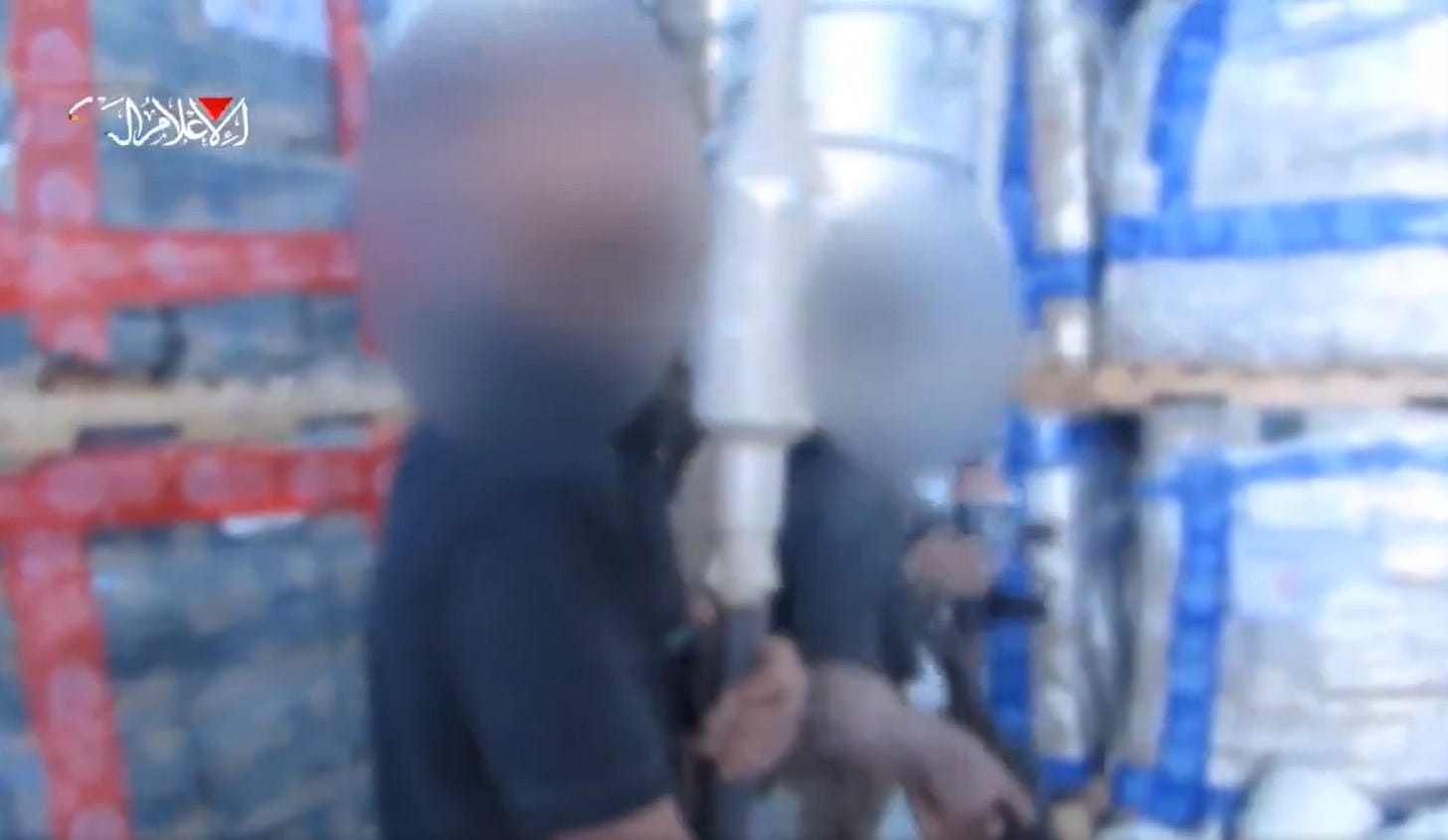Hamas Releases Video of Terrorists Firing at IDF from Inside Aid Warehouse
Footage underscores Hamas’s use of humanitarian infrastructure for terror, fueling calls for tighter aid oversight

A newly-released video published by Hamas-run Telegram channels shows terrorists—dressed as civilians—launching rockets at Israel Defense Forces (IDF) soldiers from within a Gaza aid warehouse. The footage provides direct visual evidence of Hamas utilizing humanitarian facilities for military operations, in violation of international law.
This incident is part of a broader pattern of Hamas exploiting humanitarian aid for terrorist purposes. Reports indicate that Hamas has been systematically diverting aid intended for Gaza's civilian population to support its military endeavors.
Lt. Col. (R) Peter Lerner, former international spokesperson for the IDF, commented on the implications of the video, stating that Hamas’ actions from within the warehouse “remove any [international legal] protections the location would have.” “This is how Hamas operates. They embrace the destruction of the needs of the people of Gaza for international currency,” he concluded.
“This is how Hamas operates. They embrace the destruction of the needs of the people of Gaza for international currency.”
— Lt. Col. (R) Peter Lerner
Additional Evidence of Aid Exploitation
Further investigations have uncovered that Hamas is manipulating United Nations cash assistance programs intended for Gaza's civilians. According to a Fox News report, Hamas and affiliated traders control the flow of aid money sent by U.N. organizations via mobile apps. Recipients are often forced to convert digital funds into cash through intermediaries who charge exorbitant fees, with many money changers tied to Hamas or its allies. This system effectively allows Hamas to siphon off a significant portion of the aid, strengthening its financial grip on the region and exacerbating the economic struggles of the civilian population.
The scale of this exploitation has also been flagged by U.S. government oversight bodies. A July 2024 advisory from the U.S. Agency for International Development’s Office of Inspector General (USAID OIG) confirmed that Gaza aid is at "high risk" of diversion to Hamas and other U.S.-designated terrorist organizations. Due to security constraints, U.S. officials cannot access Gaza directly to oversee aid distribution, relying instead on self-reporting by implementing partners – including UN agencies – many of which have failed to provide consistent disclosures of potential misuse.

The USAID OIG also noted that branding waivers and a lack of visible U.S. insignia on aid in Gaza make it difficult for beneficiaries to know aid is U.S.-funded, reducing accountability. Additionally, while many aid recipients must undergo partner vetting, UN agencies managing large aid portfolios in Gaza are exempt from this scrutiny, further weakening oversight.
The international community has expressed concern over these developments. Efforts are underway to implement stricter monitoring of aid distribution to ensure that humanitarian assistance reaches its intended recipients and is not exploited for militant activities. The misuse of aid by Hamas not only violates international humanitarian principles but also exacerbates the suffering of the civilian population in Gaza.
Debates About Comprehensive Gaza Aid Plans Continue
This escalation comes as both Israel and the United States are advancing plans to restructure humanitarian aid delivery in Gaza. Israel's proposed model involves a militarized system with biometric controls and private security contractors, a plan that has drawn sharp criticism from the United Nations and various NGOs for violating humanitarian principles. Concurrently, the U.S. is promoting the establishment of the Gaza Humanitarian Foundation, a private entity intended to oversee aid distribution while bypassing Hamas.
This situation lays bare the urgent need for accountability in global aid systems. The failure to enforce strict oversight not only empowers a militant regime but actively deepens the suffering of innocent Palestinians. Restoring integrity to aid distribution is not just a bureaucratic challenge — it is a moral imperative.
The United Nations Relief and Works Agency for Palestine Refugees in the Near East (UNRWA), and the United Nations Office for the Coordination of Humanitarian Affairs’ West Bank office (OCHA-OPT) did not respond to request for comment.


